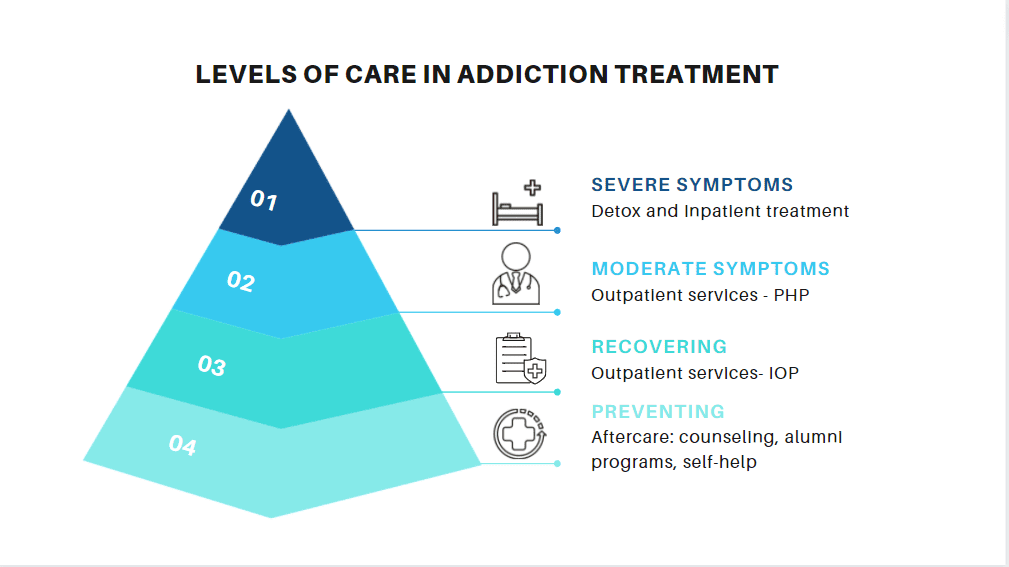Returning To Work After Rehab: What To Expect
Returning to work after rehab can be very scary: what to expect? After spending a lot of time in a rehabilitation program, you must now face the challenges of daily life. For example, you may be afraid of losing your job after rehab. Alternatively, you may be worried that the stress of returning to community life will be a trigger for a possible relapse. These emotions are very normal. But, many people can return to work and maintain a sober lifestyle after rehab.
What To Do Before Rehab
If you’re considering rehab, you know that addiction is ruining your life. Addiction, whether you realize it or not, harms your work performance. You will gain tools to improve your work performance, relationships, and outlook while in rehab. Addicts in recovery are more likely to succeed at work or find better jobs than those with untreated substance use disorders. When you seek treatment, you decide to live a happier life and pursue your career. And that’s precisely what rehab should provide! From medication to therapy, you will have all the help you need.
Give your boss as much notice as possible so they can ensure your responsibilities are covered while you’re away. However, your health and safety come first, so you should take care of yourself as soon as possible.

Work-related Tips Before Going To Rehab:
- Tell the truth about how long you plan to be gone.
- Inform your employer of the seriousness of your condition.
- Ask someone to cover you while you’re away.
- Inform your boss and coworkers that you intend to return to work.
It would be best if you kept them updated on your progress during rehab. For example, give your boss updates on time, or work with a case manager at a rehab facility to communicate with them.
The best way to have your job back after drug rehab is to commit to treatment and demonstrate your ability to perform when you return. When you admit to having an addiction, that’s the first step toward recovery. After drug rehab, you will have a lot of challenges, but with patience and a lot of will, you will get through this.
You may be able to return to work while in rehab, or you may prefer to take your time before returning to work. However, to reduce your chances of relapse, you should stay in a sober living environment and avoid risky situations.
Work After Drug Rehab: What To Expect
Returning to work after rehab has its challenges, but it is the right next step in your recovery journey. Work and recovery are equivalents of each other. Recovery depends a lot on your work. It may be overwhelming, but unless you can live without your family’s money, you will have to do it sooner or later. Here are some of the advantages of returning to work after rehabilitation.
Risks Of Returning to Work After Rehab
Being nervous about returning to work after completing addiction treatment is natural. To begin with, you’re probably concerned about whether you’ll be able to get your job back after rehab and then keep it. However, you must know that work and recovery can help you get over your addiction or worsen the situation. Therefore, return to your job only when you are ready to face the challenges of a typical workday, not earlier!
Purpose
People trying to fill the void left by drugs and alcohol may lack a sense of purpose. Work can provide a sense of purpose for many people. Returning to work after drug rehab is essential!
Keep You Busy
You may have too much free time if you don’t have a job. These long periods may lead you into bad habits and get back to drugs or alcohol. Instead, a job can keep you busy and help you better use your time. After rehab, the only thing that you need to do is do fill your free time with different meaningful activities. And work is the most helpful thing that can happen to somebody in recovery.
Connect With The Right People
Another thing to expect after rehab is making new sober friends. You may not be close to all of your coworkers, but some of them may become close friends. These people can support you during your recovery journey, especially if you are having difficulty making new friends.
Control Work-Stress
Stress is a major risk factor for relapse, and work environments are frequently stressful. There are, however, stress-relieving strategies.
- Avoiding stressful situations.
- Taking a deep breath or going outside to relax.
- Working toward short-term objectives.
- Exercising regularly.
- Eating a nutritious diet.
Many people are also concerned about their reputation or what others may think of them when they return to work. Again, talking with coworkers can help you a lot.
Interact with Coworkers
You don’t have to say anything about your personal life if you don’t want to. On the other hand, being open about having the necessary treatment and working toward recovery can help reveal internal stress. Work is a critical component of recovery and coworkers are as wll. Some of your peers may not be supportive, but you should not be concerned about their thoughts and beliefs.
Avoid and Manage Relapse
During recovery, relapses are not rare, but abusing illegal drugs or alcohol can violate workplace policies. Avoid risky situations, attend support group gatherings, and continue to attend therapy after treatment to avoid relapse.
If you notice any warning signs of relapse, reach out to a friend, family member, or therapist for help. If you are not feeling well, seek treatment as soon as possible.
Why Choose Drug & Alcohol Treatment Facilities?
Inpatient and outpatient drug and alcohol treatment facilities have experienced teams, passionate and committed to the patient’s success. They understand how important it is to make the right decision when dealing with addiction. That is why, from the moment you contact the facility, they will support you and provide you with all the information you need to know to make the best decision for you so you can work and recover simultaneously.
If you need FREE help or have Medical or Medicaid insurance, please contact the National Helpline about mental and/or substance use disorders, prevention, treatment, and recovery in English and Spanish.


Lifescape Recovery Mental Health is a top-rated mental health and addiction treatment facility in Los Angeles, California. We create a safe space for patients to explore their mental health goals and needs. We offer a free, confidential consultation to any new clients and provide a number of different therapies to treat a wide spectrum of mental health struggles such as depression, anxiety, eating disorders, and substance use disorders. Our IOP and PHP facility is fully accredited. We are one of the highest-rated centers for mental health treatment in Los Angeles, California, which provides both in-person and online therapy. Our patients express endless gratitude and appreciation for the staff and the services and recommend Lifescape Recovery for their friends, colleagues, and community. There has never been a more important time to address mental health needs! Contact us today!
Published: December 07, 2022
Last Updated: December 20, 2022

Published: February 20, 2026
IOP Program for Depression
Summary: Depression is one of the most common mental health conditions in the United States, affecting an estimated 21 million adults each year. It causes persistent changes in mood, energy, motivation, sleep, and concentration that interfere with daily functioning, work, and relationships. IOP program for depression provides structured, evidence-based treatment — including individual therapy, group […]
Read more
Published: February 05, 2026
Intensive Outpatient Program for Anxiety
Summary: Anxiety disorders are the most common mental health conditions in the United States, affecting an estimated 40 million adults each year according to the National Institute of Mental Health. While temporary anxiety is a normal response to stress, anxiety disorders involve persistent, excessive worry and fear that interfere with daily functioning, relationships, and quality […]
Read more
Published: January 26, 2026
OCD vs. Autism: Understanding the Differences
Obsessive-compulsive disorder (OCD) and autism spectrum disorder (ASD) are often confused with one another. Both can involve repetitive behaviors, rigid routines, sensory sensitivities, and distress when things feel “off.” From the outside, the overlap can look striking. But in clinical treatment, the why behind those behaviors matters just as much as the behaviors themselves. At […]
Read more
